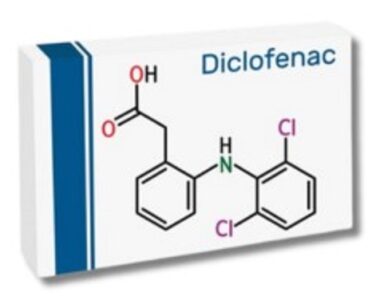No products in the cart.

Psoriasis Causes: Understanding the Triggers behind a Chronic Skin Condition
Psoriasis is a chronic skin condition that affects millions of people worldwide. It is characterized by patches of red, scaly and inflamed skin that can be itchy and painful. While it is not contagious, psoriasis can be a debilitating condition that can affect a person’s quality of life. The exact causes of psoriasis are not fully understood, but research suggests that it is an immune-mediated disorder that involves multiple genetic and environmental factors. In this article, we will explore some of the common psoriasis causes and triggers that can worsen the condition.

Causes-of-Psoriasis
Genetic Predisposition
Genetic factors play a significant role in the development of psoriasis. Studies have shown that around one-third of people with psoriasis have a family history of the condition. Researchers have identified several genes that are associated with psoriasis, including genes that regulate the immune system, skin cell proliferation, and inflammation. However, having these genetic factors does not necessarily mean that a person will develop psoriasis. Environmental factors and lifestyle choices can also trigger the onset of psoriasis or exacerbate existing symptoms.
Immune System Dysregulation:
Psoriasis is an autoimmune disorder, meaning that the immune system mistakenly attacks healthy skin cells. Normally, the immune system protects the body by fighting off foreign invaders such as viruses and bacteria. However, in psoriasis, the immune system goes into overdrive and attacks the skin cells, causing inflammation and accelerated skin cell growth. This leads to the formation of scaly, raised patches on the skin. Triggers such as stress, infections, and certain medications can cause the immune system to become dysregulated, thereby worsening psoriasis symptoms.
Environmental Triggers:
Environmental factors such as weather, climate, and pollution can play a role in the development and exacerbation of psoriasis. Cold and dry weather, for instance, can dry out the skin, which can lead to flares of psoriasis. Exposure to sunlight can improve psoriasis symptoms in some people, but in others, it can trigger a flare-up. Chemical irritants and pollutants from smoke, dust, and other environmental contaminants can also exacerbate psoriasis symptoms.
Infections:
Infections of the skin or other parts of the body can trigger psoriasis or worsen existing symptoms. Streptococcal throat infections, for example, have been linked to the onset of guttate psoriasis, a subtype of psoriasis characterized by small, raindrop-like lesions on the skin. Other infections such as yeast infections, respiratory infections, and sexually transmitted infections can also trigger psoriasis or exacerbate symptoms.
Stress:
It is a common trigger for many chronic conditions, and psoriasis is no exception. So stress can cause the immune system to become dysregulated, leading to inflammation and a worsening of psoriasis symptoms. In addition, stress can worsen the emotional toll of living with psoriasis, leading to increased anxiety and depression.
Alcohol and Smoking:
Alcohol consumption and smoking have both been linked to the onset and exacerbation of psoriasis. The Alcohol can increase inflammation in the body, which can trigger or worsen psoriasis symptoms. Smoking, on the other hand, can damage blood vessels and reduce oxygen supply to the skin, which can impair skin health and exacerbate psoriasis. Furthermore, smoking can increase the risk of certain infections and respiratory conditions that can trigger psoriasis.
Medications:
Certain medications, such as beta-blockers, lithium, and antimalarials, have been associated with the onset or worsening of psoriasis symptoms in some people. These medications can cause an immune response or dysregulate the immune system, leading to psoriasis flares. In addition, sudden discontinuation of certain medications can also trigger psoriasis symptoms.
Summary:
It is a complex condition that involves multiple genetic and environmental factors. While the health experts are not able to determin the exact causes of psoriasis are not fully understood, research suggests that it is an immune-mediated disorder that involves dysregulation of the immune system. Factors such as genetic predisposition, environmental triggers, infections, stress, alcohol and smoking, and certain medications can all contribute to the onset and exacerbation of psoriasis symptoms. By understanding these psoriasis causes and triggers, people with psoriasis can take steps to manage their condition and improve their quality of life.




12 Comments